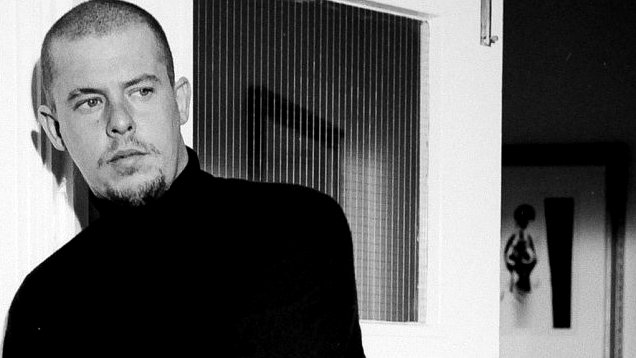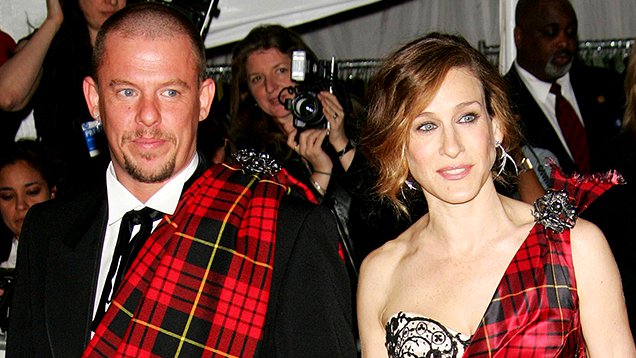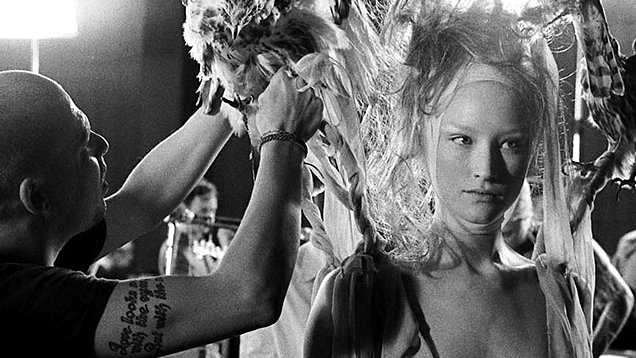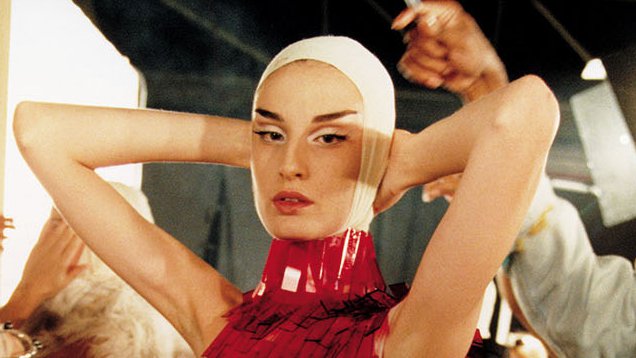How we made McQueen: interview with the directors of the acclaimed fashion designer documentary

Currently sitting on a perfect 100% Rotten Tomatoes approval rating, the riveting McQueen – about legendary fashion designer Alexander McQueen – is one of the most acclaimed documentaries of the year. We sat down with co-directors Ian Bonhôte and Peter Ettedgui to talk about the making of this remarkable film.
FLICKS: When making a documentary of this kind it is inevitable that some people are willing to participate and some aren’t. What sort of response did you get when you approached people and what sort of hurdles did you overcome?
IAN: When we first started on the project, it kind of happened quite quickly. There was a positive side but the downside was that we didn’t have much time to prep and reach out to people. We were making the film as we were convincing people to take part in it, as well as gathering all the archive material. The first response was a very sceptical one. You have to be aware that there were a lot of projects – books, articles and other things – have been written about Alexander McQueen. There have been a lot of scandalous and salacious articles, focusing more on parts of his life to sell newspapers.
That’s one thing we absolutely didn’t want to do…but still, saying that, people didn’t know what film we were making and they didn’t know us. Fashion is a very ‘inner circle’ industry. If people don’t know you it’s very hard to suddenly come in and say: oh, we’re going to make a film about the most sensational, provocative, talented fashion designer. Many of his friends and family were like: who are you? Why would you? So we just had to convince people, and that took a long time. Luckily people warmed up to us and introduced

FLICKS: Michael Nyman’s score is just fantastic. A lot of really striking stringed instruments used to great effect. Whose idea was it to have music with this kind of intensity, and how did you go about implementing it?
PETER: We were very lucky, because when we were researching the film we found there were very interesting connections between McQueen and Michael Nyman. We’d always loved his music. He’s a fantastic film composer but he’s also an amazing, contemporary, topical electronic composer as well. So he has all those strings to his bow. We thought it made total sense to try and get Michael to supply the music for the film. We kind of thought, we’ll never get him! But we did.
He was very enamoured with the way we were approaching the film. When we first met him, he had already seen an early cut of one of the chapters, and he was totally on board. What we decided – partly because of our schedule, and partly because of the nature of making a film like this – was that we would use pre-existing music he had composed, rather than getting him to compose a completely original score. He was very much on board with that and gave us a honeypot of around 25 hours worth of music.

FLICKS: One of your interviewees says a lot of people in the fashion industry suffer from anxiety, depression and panic attacks. She says the industry has a negative effect. Do you agree with that comment – about the negative effect it can have on a person’s psychology?
PETER: Yeah, but I think you’ve got to be a little bit careful. We didn’t want to be judge-y about the fashion business. That would just be too easy. There are dysfunctional aspects to it, but it’s also a very exhilarating business to be involved in. It can be incredibly creative, and it’s also right at the heart of contemporary pop culture. So people want to be involved with it. McQueen wanted to be involved with it and had a love/hate relationship with it.
We wanted to show the love side as well as the hate side. There was definitely a point where the pressure mounted. We wanted to show how it can consume you. It takes someone with a very strong character to kind of tame the fashion industry and make it work according to what’s healthy for them. More often than not there is a great danger of burn out, and the superficial aspects of the business dragging you down.

FLICKS: A lot of documentaries about legendary people tend to sensationalise things. They sometimes make humans too much like legends. But McQueen doesn’t do that. What kind of techniques did you deploy to make sure the documentary wasn’t over sensationalising?
IAN: The technique we chose was actually very simple: be respectful and truthful. I think a lot of people try, in certain documentaries, to reveal a big secret or announce something or show something that’s never been see before. We are very respectful of our audience’s intellect. We know that a lot of people realise that the icons that industries create – the film industry, the fashion industry – they can be very fragile human beings. Sometimes they are strong, but sometimes they go downhill for personal reasons.

















